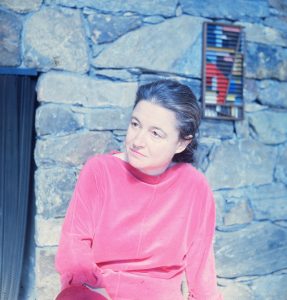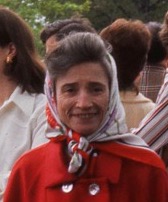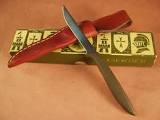Here are a few books I’ve read recently. Some I’ve enjoyed more than others. I’ll start with a rave:
Daughter of Redwinter, by Ed McDonald (Tor) What a great read! From the first page, this book grabbed me and carried me along. Superb action, wonderful characters, ever-escalating stakes, and mystery. The story opens with Raine, our heroine, creeping out the back way from a monastery under military siege, looking for an escape route, only to encounter a mysterious wounded woman who is desperate to get back in. On the woman’s heels are a group of warrior-magicians, bent on stopping her even if it means tearing down the walls. The military besiegers are willing to aid the magicians, but what they’re after is inside — people with “grave-sight” that allows them to see, and sometimes speak with, the dead. Raine is one of those with the talent that means execution, should it be discovered. All her life she has hidden, lied, and run away to save her skin, and she’s made some spectacularly bad choices along the way.
What a great read! From the first page, this book grabbed me and carried me along. Superb action, wonderful characters, ever-escalating stakes, and mystery. The story opens with Raine, our heroine, creeping out the back way from a monastery under military siege, looking for an escape route, only to encounter a mysterious wounded woman who is desperate to get back in. On the woman’s heels are a group of warrior-magicians, bent on stopping her even if it means tearing down the walls. The military besiegers are willing to aid the magicians, but what they’re after is inside — people with “grave-sight” that allows them to see, and sometimes speak with, the dead. Raine is one of those with the talent that means execution, should it be discovered. All her life she has hidden, lied, and run away to save her skin, and she’s made some spectacularly bad choices along the way.
The book was full of drama and poignant emotion, hard-bitten action and sweet romance. The balance between slowly unfolding mystery, lightning reversals and betrayals, and coming of age of a most remarkable heroine was exceptionally well handled. Most of all, from the very first paragraphs, I found myself relaxing into the hands of a master storyteller, confident that wherever the tale took me, it would be a wild and infinitely satisfying ride. I was never disappointed.
Rosebud, by Paul Cornell (Tordotcom) “The crew of the Rosebud are, currently, and by force of law, a balloon, a goth with a swagger stick, some sort of science aristocrat possibly, a ball of hands, and a swarm of insects.” Although they’re not human, at least not in their current form, they’re most definitely people. And they’re fanatically devoted to The Company, which for 300 years has placed them out in the back acres of space. When they come upon a mysterious black sphere, they arrive at a plan, after much squabbling: to capture the object for the Company, thereby earning lots of praise.
But the object is not what anyone might expect; it has the ability manipulate probability and time-lines, thereby controlling the crew of the Rosebud by selecting the futures with the most benign outcomes. As the crew attempts to understand what’s happening to them, their own pasts are revealed, as well as the less-than-benign nature of the Company.
I loved how the crew figures out that their memories are unreliable and what the object doing. In the end, however, I found the “universe-changing” revelations opaque. I wanted to like and understand the story, but ended up just not getting it, which is never a good feeling to leave a reader with.
Dark Earth, by Rebecca Stott (Random House). I requested this book from Netgalley based on the description. I loved the idea of an underworld of rebel women living secretly amid the ruins. Alas, the opening was so sedate and the characters so bland and unrelatable, I gave up in the middle of the second chapter. There simply wasn’t enough to keep me reading. By contrast, the next book I picked up grabbed me right away, so I saw no reason to take another look.
The Hundred Loves of Juliet, by Evelyn Skye (Del Rey) What a great premise — Romeo and Juliet, reincarnated many times over the centuries, always drawn together and always linked in tragedy. In an added twist, Romeo is immortal and remembers all his previous loves. He knows, for example, that whoever Juliet is in any given lifetime, she will die within two years. Juliet, on the other hand, has no idea of their history together. Now in the 21st Century, writer “Juliette” and sea captain “Romeo” find themselves thrown together by fate and consuming attraction. Can they break the cycle?
Well, maybe, if he would just sit down with her and have a candid conversation. Clearly, he’s failed to do that before, only to watch his beloved-of-this-century die, usually horribly. You would think he’d learn from his disasters. Of all the failings of a typical romance novel, the stupidity of keeping secrets ranks top of my list. Even if “Juliet” thinks he’s delusional and doesn’t believe him, at least he would have given her a rationale for him walking away from her. Which he tries to do, but because she has no idea why, it doesn’t work.
I had other quibbles, including the passages supposedly diaries and so forth from past centuries but laden with contemporary sensibilities, that the heroine tries way too hard to be likeable, that the hero is an example of “female-gaze” and not a real person. Although the prose is for the most part pretty good, it slips into tone deafness all too often.
I suspect that this is a romance with fantastic elements, rather than a reincarnation/time-travel fantasy with a love story, and that science fiction/fantasy readers like myself will have a much harder time with it than romance readers. Regardless, I gave up around the 24% mark. I simply didn’t care what happened next as long as the characters were being so dishonest with each other and themselves.
Blood of the Pack (Dark Ink Tattoo Book One), by Cassie Alexander (Caskara Press). My introduction to the works of Cassie Alexander was the “Nightshifted” series (in which a nurse discovers a new career path in a secret hospital ward for supernatural patients). I loved how she handled nonhuman characters, great dramatic tension, and smooth prose. So I picked up this first book in a new series without knowing much about it beyond the lots-of-queer sex content warnings. I found many of the elements I’d previously enjoyed, including characterization and great action sequences. The sex scenes were better done than usual for “high heat” stories. There was a nice balance in tension between a satisfying landing level for the first novel in a series on the one hand, and enough of a cliff-hanger so the reader will be left hungry for the next. My personal quibble, and other readers may feel quite differently, was that the sex scenes took up a disproportionate amount of space for what they contributed to the plot. I think this has to do with what different readers look for. If it’s a (in this case) action-mystery with sex scenes that enhance that plot, or if it’s very juicy sex scenes that make sense in terms of character and motivation. As I said, the scenes are very well done, great examples of how to write literate, well-paced intimate encounters. I especially liked the depiction of consent, the mutuality of pleasure, and the care of the partners for one another.
And of course, if that sex comes with vampire and werewolves, oh my, so much the better.
And I’ll end with more raves…
Drunk on All Your Strange New Words, by Eddie Robson (Tordotcom). I loved this fresh and wonderful take on human-alien cultural clashes! This alien race, the Logi, are approximately humanoid in appearance and possess valuable technology. They’re fascinated by human culture, especially the arts and printed books. The catch is that they communicate telepathically through specially trained “Thought Language” translators. One such is our heroine, Lydia, from a poor British background. She loves her work, the only thing she’s ever been really good at, not to mention her generous salary and her sensitive, thoughtful boss, the Logi cultural attaché. All this makes it worth feeling drunk from translating between Thought Language and English. It all goes to hell when her boss is murdered and she’s the prime suspect. Both her freedom and her ability to solve the mystery depend on her remaining at the Embassy, and the Logi is charge has never liked her.
Drunk on All Your Strange New Words combines alien contact science fiction, a sympathetic heroine, weird maybe-supernatural stuff, and a highly complex mystery filled with surprises and reversals. I found Lydia, with all her insecurities, bravura, and gullibility, deeply sympathetic. I fell for the same deceptions and cheered her on as the pieces of the puzzle fell into place. This is a smart science fictional mystery and a wonderful take on how even truly weird aliens and humans can find understanding and common ground. Best of all, a deeply flawed character prevails at the end.
Three Miles Down, by Harry Turtledove (Tor). At the height of the Cold War and on the brink of the 1974 Watergate scandal, the US discovers a sunken Soviet submarine…and something they didn’t expect. Something they want to keep even more secret. Under the guise of harvesting undersea manganese nodules, they recruit a team of experts, including marine biology grad student and aspiring science fiction author, Jerry Stieglitz. After being sworn to secrecy, Jerry learns the secret-inside-the-secret: the Soviet sub is sitting on top of an alien spaceship. They want Jerry not only to bolster their disguise when Soviet warships come to check them out but to use his writerly imagination in interacting with the ship and its inhabitants, both dead and in suspended animation. His insight (derived from the scene at the doors of Moria, “speak friend and enter”) opens the door to the ship, for example. Of course, all does not go swimmingly. These are the days of anticommunist paranoia, an increasingly embattled POTUS, and paranoid intelligence agencies. The stakes for Jerry are not just being kicked off a lucrative and historic mission, but survival itself.
Turtledove is a terrific writer, combining sfnal First Contact elements, humor, the unfolding domestic political drama, and human interactions, whether it’s Jerry’s friendships with the others on his alien-spaceship team or his difficulties with his fiancée when he goes missing for months. All this is highly enjoyable, fast reading, but what I found most delightful were the many homage-to-science-fiction touches, like a love letter to fans. There’s even a guest appearance by a well-known hard science fiction author (I won’t divulge who!) that had me laughing out loud at how brilliant the portrayal was. (I’d met the guest-appearance author and yet, that’s exactly what they’d say!)
The Assassins of Thasalon, by Lois McMaster Bujold (Subterranean). I first fell in love with…isn’t that the best way to begin a book review? In the case of Lois McMaster Bujold, the love affair goes back to Ethan of Athos (1986) and Falling Free (1988) Once Miles Vorkosigian burst upon the scene, I was thoroughly hooked. The Curst of Chalion, the first novel set in the World of Five Gods, saved me one convention (I think it was a WorldCon) when I ended up with a concussion from getting slammed in the head by a heavy glass door. I stayed an extra night, reading and re-reading, marveling at the layers of richness. But I digress: Chalion was followed by the equally awesome Paladin of Souls, then The Hallowed Hunt, and—about 100 years earlier in chronology—the Penric and Desdemona novellas. I gobbled them all up, although Chalion retains a special, perhaps concussion-inspired, place in my heart.
Penric is this world’s version of a healer/cleric, both aspects being supernaturally inspired by his god, the Bastard, and the many-generations-old temple demon, Desdemona, who shares his mind and, occasionally, his body. Through her, he can tap into magical powers as well as the experience and memories of her former hosts. “Demon” has a different connotation here than the one typically used. While she is definitely a non-material being, she was born of chaos and has been shaped into a person by her relationships with her human hosts. She’s also sly and sarcastic, although she would never admit to being loving.
Which brings us to the latest adventure, novel-length instead of the previous novellas. The set-up is framed as a mystery: who is trying to assassinate Penric’s brother-in-law, the exiled, brilliant general? In the process of tracking down the attempted murder and preventing further attacks, Pen and Desdemona uncover a plot that goes right to the heart of what makes a person, and what part does the right use of power (or the atrocities of its misuse) play? In too many fantasy stories, characters lack family ties, or they have them, the families are off-stage and forgotten. Not so in this series. Penric lives in a matrix of people he loved and who love him, sometimes as vividly present when he is hundreds of miles away as when they’re in the same scene.
Bujold is such a skillful writer, her work is a joy to read. I’m hooked on the first page, wanting to read faster to find out what happens next and yet wanting to read slowly to savor all the nuances. She plays fair with giving the reader all the necessary information, but she doesn’t berate, lecture, or inflict long explanations. Beneath the mystery-plot, there are layers and layers of story-gold. Although I rejoiced at the novel length, the end still came too soon.
Like the previous Penric and Desdemona stories, this one can be read as a stand-alone, although the references to previous happenings and off-stage characters would be enhanced by having read the adventures that involve them. On the other hand, as an entry drug, it’s a grand excuse to sample this world and its people, and then run off and delve into what has come before.
Highly recommended.


 What a great read! From the first page, this book grabbed me and carried me along. Superb action, wonderful characters, ever-escalating stakes, and mystery. The story opens with Raine, our heroine, creeping out the back way from a monastery under military siege, looking for an escape route, only to encounter a mysterious wounded woman who is desperate to get back in. On the woman’s heels are a group of warrior-magicians, bent on stopping her even if it means tearing down the walls. The military besiegers are willing to aid the magicians, but what they’re after is inside — people with “grave-sight” that allows them to see, and sometimes speak with, the dead. Raine is one of those with the talent that means execution, should it be discovered. All her life she has hidden, lied, and run away to save her skin, and she’s made some spectacularly bad choices along the way.
What a great read! From the first page, this book grabbed me and carried me along. Superb action, wonderful characters, ever-escalating stakes, and mystery. The story opens with Raine, our heroine, creeping out the back way from a monastery under military siege, looking for an escape route, only to encounter a mysterious wounded woman who is desperate to get back in. On the woman’s heels are a group of warrior-magicians, bent on stopping her even if it means tearing down the walls. The military besiegers are willing to aid the magicians, but what they’re after is inside — people with “grave-sight” that allows them to see, and sometimes speak with, the dead. Raine is one of those with the talent that means execution, should it be discovered. All her life she has hidden, lied, and run away to save her skin, and she’s made some spectacularly bad choices along the way.



 I was on my way to Judy’s house when I was mugged. It was about 7pm, dark–so it must have been early Spring–and I was walking along Green Street in Cambridge, around the corner from my house on Putnam Avenue. I was thinking about going over to my boyfriend’s after dinner, I was thinking about work and some writing. I was not thinking that one of the two young men across the street would suddenly rush at me and grab for my bag.
I was on my way to Judy’s house when I was mugged. It was about 7pm, dark–so it must have been early Spring–and I was walking along Green Street in Cambridge, around the corner from my house on Putnam Avenue. I was thinking about going over to my boyfriend’s after dinner, I was thinking about work and some writing. I was not thinking that one of the two young men across the street would suddenly rush at me and grab for my bag.